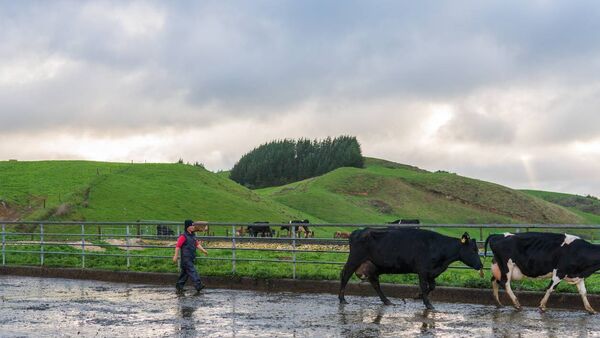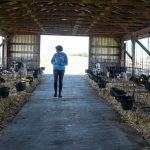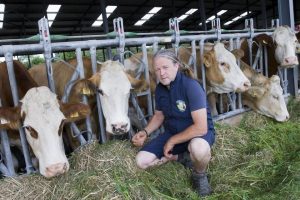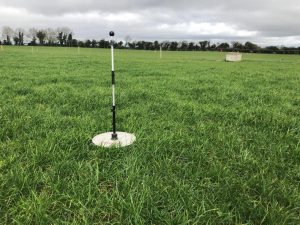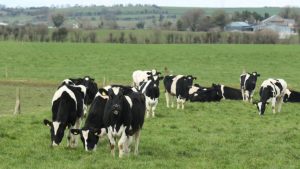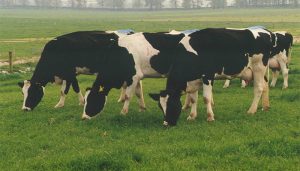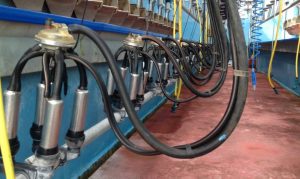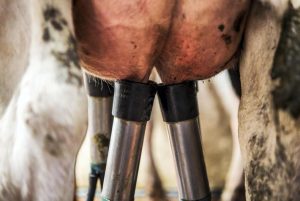
The number of EU dairy farms going out of business will break a new record, warn three major farming organisations in an open letter to the European Commission.
The letter calls on the EU to put a crisis prevention instrument for the dairy sector in place, along the lines of the voluntary milk production reduction scheme, which the European Milk Board, one of the organisations to sign the letter,
has long requested. The letter is also signed by three organisations fighting hunger in undeveloped countries.
The letter says over-production of EU dairy products must be avoided not just for the sake of struggling EU dairy farmers but also because “dumping exports” decimates local markets and threatens local production in Africa.
Sent to the European Commission on June 1 (World Milk Day), the letter says if a crisis instrument is not activated, the dairy sector will very soon be severely affected by an overproduction crisis due to a drop in demand and rising milk volumes. “This will have an extremely deleterious impact on farmers in the EU and on their counterparts in African countries, as well as on food security”.
“Significant increases in costs, hand in hand with rising producer prices, have shaped the situation in the dairy sector in the last year. However, this exceptional situation where the gap between prices and production costs had practically closed in some countries is now over. Higher milk volumes, as well as shrinking demand due to inflation, have led to significant price decreases. The surplus on the market has triggered a race to the bottom.”
“To deal with problematic situations and crises in the future, we need a mechanism that automatically activates measures such as a voluntary production reduction scheme.
“Delays in taking action due to lengthy political discussions and blockades result in producers having to pay the price for this and food security being jeopardised, something that could be avoided. This mechanism would make it possible to rapidly reinstate market balance”.
The organisations emphasised the importance of preventing a new milk crisis at all costs. “Furthermore, attracting the younger generation into the profession is crucial.
“Letting the market dictate its own law is utterly inappropriate as it squeezes out the economically weaker stakeholders, including those who have just taken over a farm. Every crisis has a restructuring effect which leads to producers being pushed out.”
Instead, EU policy must ensure farmers a decent income in the long term, demanded the EMB, ECVC, APLI, and France’s Confédération paysanne, plus OXFAM, SOS FAIM, and CFSI.
With member organisations in 16 European countries (including ICMSA in Ireland), the EMB represents about 100,000 dairy farmers. It has long campaigned for a price that covers the average milk production costs, and a crisis prevention instrument to prevent over-production.
The EMB says that prices did not rise above cost levels for many EU dairy farmers in 2022, and the always chronic deficit between prices and costs is now widening, resulting in total exploitation of farmers.
EMB President Kjartan Poulsen, Denmark, said more than 10% of farmers abandoned the dairy sector in Lithuania recently, and other countries would soon follow suit.
APLI is the Association of Independent Milk Producers of France ECVC is the European Co-ordination Via Campesina, the collective voice of peasant farmers in Europe, which supports food sovereignty and peasant agroecology for members in 21 European countries.
The other signatories to the letter to the EU Commission are OXFAM (France and Belgium), SOS FAIM (a Belgian NGO that fights hunger and poverty in Africa and Latin America by supporting family farming and agro-ecological transition) and the Comité Français pour la Solidarité Internationale (CFSI) which brings together 24 organisations to support long-term development projects to fight hunger and inequality.
It called on the Commission to put back on the table real regulation of milk production volumes and prices. “Milk pricing must be decoupled from global markets and be initially based on 90% of the internal market values”, demanded the organisations.
Crisis management measures in the event of a fall in dairy farmer income were demanded as part of policies to promote “human-scale” farms adapted to climate and biodiversity imperatives.
